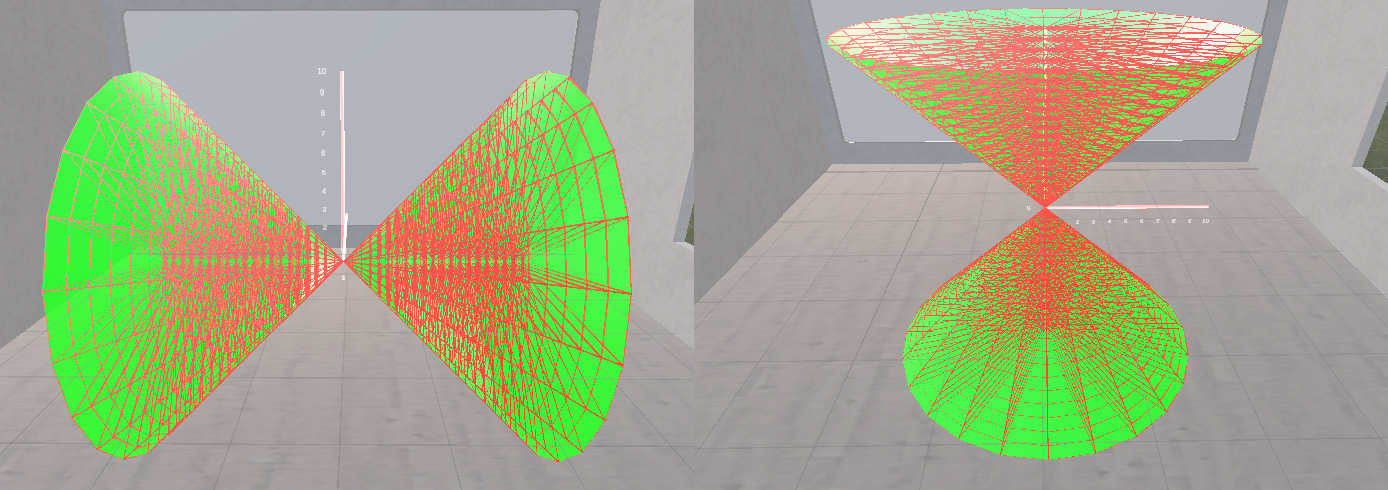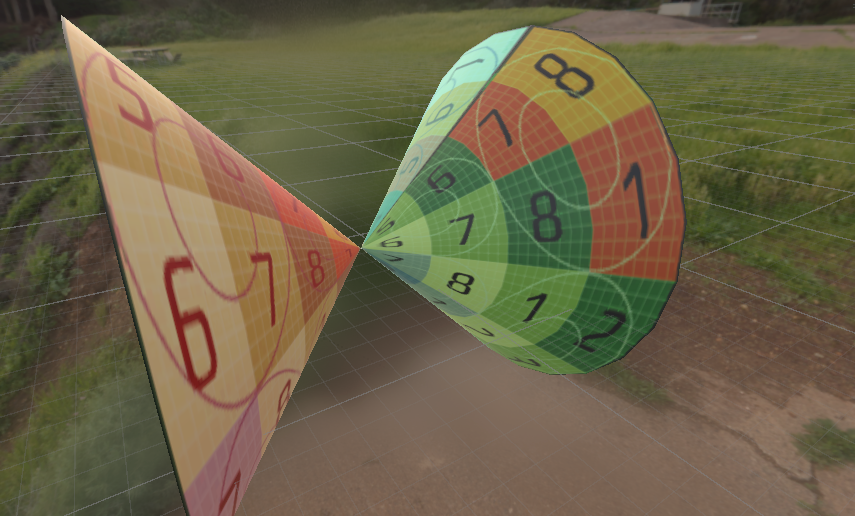Enhancing Calculus Learning through Interactive VR and AR Technologies
Overview
Our research focuses on developing and evaluating an innovative Virtual Reality (VR) graphing tool designed to enhance the learning experience for students in advanced calculus courses. This project aims to address the challenges students face in visualizing complex mathematical concepts, particularly in 3D space.
Research Objectives
- Develop an immersive, interactive VR graphing tool capable of visualizing standard 2D graphs, solids of revolution, and other complex calculus concepts.
- Investigate the impact of VR technology on student understanding and engagement in calculus education.
- Explore the potential of AR applications in classroom settings for mathematics education.
- Evaluate the effectiveness of immersive technologies in improving spatial reasoning and creative thinking in STEM fields.
Key Features of the VR Tool
- Interactive 3D visualization of mathematical functions and solids of revolution
- Custom UI elements for intuitive interaction within the VR environment
- "Unrolling" visualization for a better understanding of solid formation
- Cross-section visualization capabilities
- Underlying Riemann sum visualization for deeper conceptual understanding
Methodology
Our study employs a mixed-methods approach:
- Tool Development: Created using Unity 3D engine with custom shaders and procedural mesh generation.
- Participant Recruitment: Students from Calculus II and III courses at West Texas A&M University.
- Data Collection:
- Preliminary survey on students' attitudes towards AR/VR in education
- Hands-on sessions with the VR tool
- Post-interaction questionnaires based on the ARCS (Attention, Relevance, Confidence, Satisfaction) framework
Key Findings
- Improved Understanding: 71% of students reported that the VR studio helped them better understand solids of revolution.
- Classroom Utility: 95% of participants found the VR studio useful in a classroom setting.
- Study Tool Effectiveness: 100% of students valued the VR studio as a study tool.
- Intuitive Learning: 95% of students found the VR tool more intuitive than conventional teaching methods.
- Cross-Subject Applicability: 86% of students recognized the potential of VR applications in other subjects beyond mathematics.
ARCS Framework Results
- Attention: 4.14/5
- Relevance: 4.21/5
- Confidence: 4.14/5
- Satisfaction: 3.73/5
These scores indicate high student engagement levels and the VR tool's perceived value in calculus education.
Future Directions
- Expand the tool's capabilities with more advanced graphical features and interactive simulations.
- Develop an Augmented Reality (AR) version for easier classroom integration.
- Extend the application to other STEM fields, such as physics and computer science.
- Conduct larger-scale studies to validate the tool's effectiveness across diverse student populations.
Impact on Educational Practice
This research contributes to the growing body of evidence supporting the use of immersive technologies in education. By providing students with interactive 3D visualizations of complex mathematical concepts, we aim to transform traditional teaching methodologies and enhance learning outcomes in STEM fields.
Research Team
- Lead Researchers: Mohammad Faridul Haque Siddiqui, Logan Pinter and
- Department: Computer Science, College of Engineering, West Texas A&M University
Publications
- Pinter, L.; Siddiqui, M.F.H. Enhancing Calculus Learning through Interactive VR and AR Technologies: A Study on Immersive Educational Tools. Multimodal Technol. Interact. 2024, 8(3), 19; https://doi.org/10.3390/mti8030019
Collaboration Opportunities
We welcome collaborations with other institutions and industry partners interested in advancing the use of VR and AR technologies in mathematics education. If you're interested in partnering with us or learning more about our research, please contact:
Mohammad Faridul Haque Siddiqui
Email: msiddiqui@wtamu.edu


